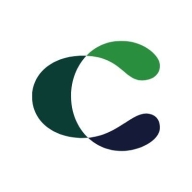

SonarQube and Contrast Security Assess are competitors in code analysis and security. While each has its strengths, Contrast Security Assess shines in real-time threat detection and integrations, whereas SonarQube excels in code analysis and reporting.
Features: SonarQube offers static code analysis, code quality insights, and support for multiple programming languages, enhancing code reliability and maintainability. Contrast Security Assess features dynamic application security testing, real-time threat detection, and deep integration with agile development processes.
Room for Improvement: SonarQube could improve its dynamic security testing and enhance real-time threat detection. Additionally, expanding integration with current DevOps tools would benefit users. Contrast Security Assess could bolster its language analysis capabilities, refine user interfaces for better usability, and offer more flexible pricing models.
Ease of Deployment and Customer Service: SonarQube's deployment model is straightforward, with strong community support appealing to teams seeking simplicity. Contrast Security Assess features a more complex deployment process but provides robust customer service, ideal for organizations requiring professional support.
Pricing and ROI: SonarQube is budget-friendly, offering a predictable pricing structure resulting in high ROI from its code quality tools. Contrast Security Assess, while more expensive initially, justifies its cost with advanced security features and substantial ROI for security-focused enterprises.
| Product | Market Share (%) |
|---|---|
| SonarQube Server (formerly SonarQube) | 20.5% |
| Contrast Security Assess | 0.9% |
| Other | 78.6% |


| Company Size | Count |
|---|---|
| Small Business | 2 |
| Midsize Enterprise | 3 |
| Large Enterprise | 6 |
| Company Size | Count |
|---|---|
| Small Business | 41 |
| Midsize Enterprise | 24 |
| Large Enterprise | 79 |
Contrast Security is the world’s leading provider of security technology that enables software applications to protect themselves against cyberattacks, heralding the new era of self-protecting software. Contrast's patented deep security instrumentation is the breakthrough technology that enables highly accurate assessment and always-on protection of an entire application portfolio, without disruptive scanning or expensive security experts. Only Contrast has sensors that work actively inside applications to uncover vulnerabilities, prevent data breaches, and secure the entire enterprise from development, to operations, to production.
SonarQube provides comprehensive support for multi-language development, custom coding rules, and quality gates, integrated seamlessly into CI/CD pipelines. It empowers teams with clear insights through intuitive dashboards, identifying vulnerabilities, code smells, and technical debt.
SonarQube is renowned for its extensive capabilities in static code analysis, making it an invaluable tool for maintaining code quality. By fully integrating into development processes, it allows organizations to manage vulnerabilities and ensure compliance with coding standards. Its extensive community and open-source roots contribute to its accessibility, while robust dashboards facilitate code quality monitoring. Despite its strengths, feedback suggests enhancing analysis speed, better integration with DevOps tools, and refining the user interface. Users also point to the need for handling false positives effectively and expanding on AI-based features for dynamic code analysis.
What are SonarQube's main features?In industries like finance and healthcare, SonarQube aids in obtaining regulatory compliance through rigorous code quality assessments. It is implemented to enhance cybersecurity by identifying potential vulnerabilities, while ensuring code meets the stringent standards demanded in these fields. As part of a broader development ecosystem, its integration in CI/CD pipelines ensures smooth and efficient software delivery, catering to phases from code inception to deployment, effectively supporting large-scale and critical software applications.
We monitor all Application Security Tools reviews to prevent fraudulent reviews and keep review quality high. We do not post reviews by company employees or direct competitors. We validate each review for authenticity via cross-reference with LinkedIn, and personal follow-up with the reviewer when necessary.